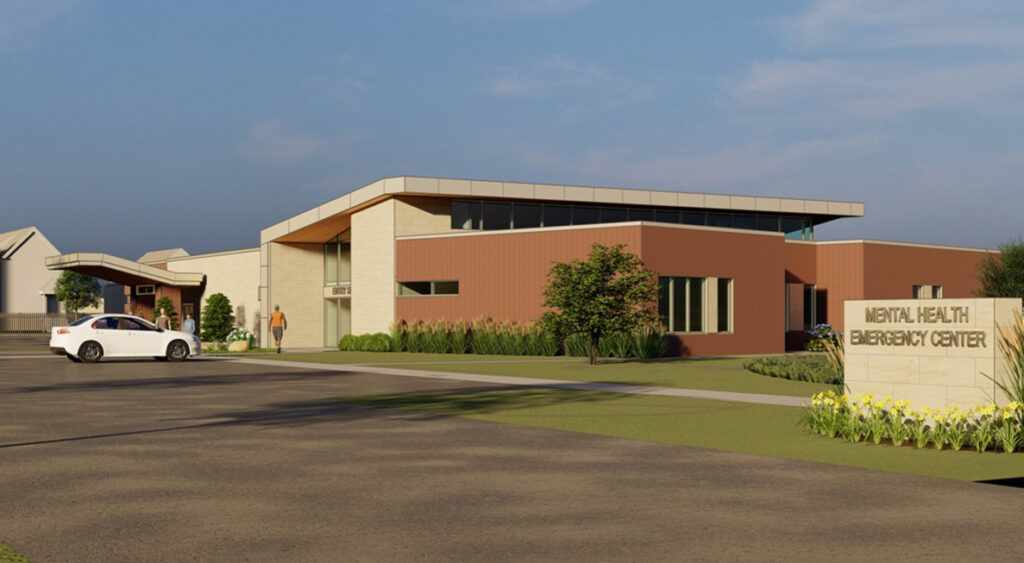Many Lack Mental Health Services, Survey Finds
Survey of county by Milwaukee Health Care Partnership finds access to care a major issue.

Local health leaders hope the new Mental Health Emergency Center, which is scheduled to open in September, will address the need for more mental health services in the community. Photo provided by Mental Health Emergency Center/NNS.
The need for more mental health services and access to care in Milwaukee County were among the top concerns of those surveyed in the 2021 Community Health Needs Assessment.
The survey, conducted by the Milwaukee Health Care Partnership, a nonprofit organization that aims to connect Milwaukee residents with services, identified five issues that were important to residents: mental health, violence, drug use and overdose, violence and access to health care. The results were released Thursday.
The survey found residents also were concerned about infectious diseases, such as COVID-19; chronic diseases like diabetes and hypertension; and infant and maternal health.
These diseases have all been found to disproportionately affect communities of color in Milwaukee.
Survey addresses racism for first time
This year’s community health needs assessment was the first to poll participants directly about racism and discrimination. Roughly 57% of survey respondents identified systemic or structural racism as a factor in poor health outcomes for people of color, including 86% of Black and 65% of Latinx respondents.
“We’ve seen a lot of these inequities and disparities exacerbated during the pandemic,” said Justin Rivas, director of community health initiatives for the Milwaukee Health Care Partnership.
About 57% of Black respondents also said they did not think people of color would receive the same care from doctors as their white counterparts.
“We need that so we’re not coming at it from a place of assumptions but a place of partnership,” Killoran said.
About 50% of all respondents identified mental health as a top health concern.
Cost was cited as a major reason for not seeking mental health care: About 38% of those surveyed said services were too expensive or they couldn’t afford them. Nearly a quarter of respondents said the wait to get mental health services was too long.
Rivas said that local health leaders hope the opening of the Mental Health Emergency Center will help to address some of these concerns. The center stands to bring 24-7 access to emergency mental health services in its central city location, 1525 N. 12th St. It is expected to open in September.
Concerns about access to care
A lack of access to care was also cited as a major issue. When surveyed, 25% of Black respondents said there weren’t affordable health care options in their neighborhoods. Nearly 30% said they didn’t know if there were options. In the Latinx community, about 30% of respondents said there weren’t affordable services and 30% said they didn’t know about them.
Rivas said the results indicated a need for more education and outreach in these communities.
Researchers also conducted focus groups and listening sessions for community input.
“For us, we’re looking at how we can embed this in primary care,” Killoran said. “How can doctors screen patients so these issues come up? How can we give patients real-time access when they’re already there instead of a six-week wait?”
Rivas said the data from the survey will also be used by public health agencies, such as area health departments and philanthropic organizations, to guide investments.
“This is a collective effort to think about upstream investment,” Rivas said. “When it comes to addressing these issues, it can’t be done by any one sector.”
Upcoming events
The Health Care Partnership will host virtual community briefings from 3 p.m. to 4:15 p.m. on May 12, May 16, May 19 and May 24. More registration information can be found on its website.
Read the report
The full survey can be read here. A brief that recaps the results can be read here.
Residents seek more mental health services and want more access to care, survey finds was originally published by the Milwaukee Neighborhood News Service.





















